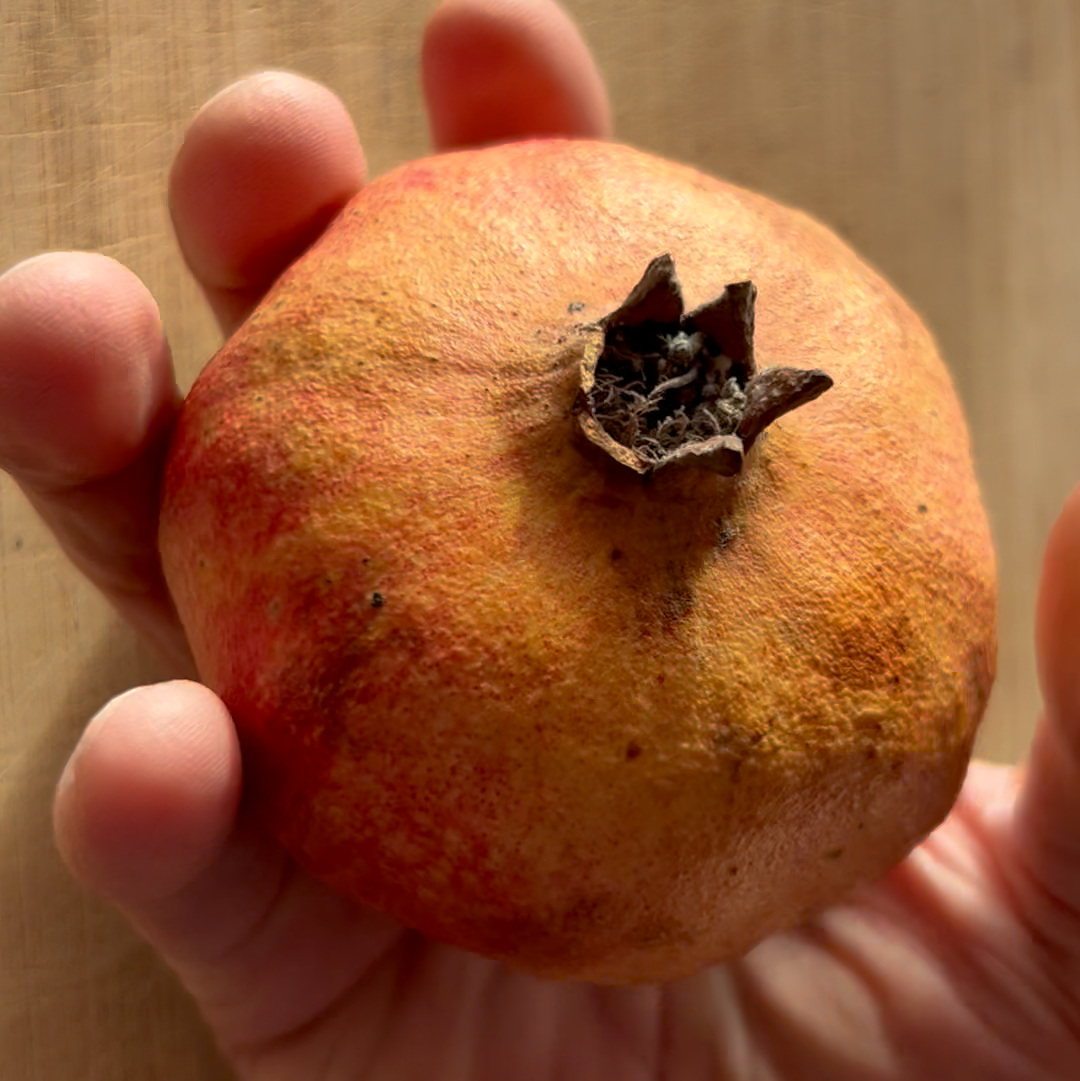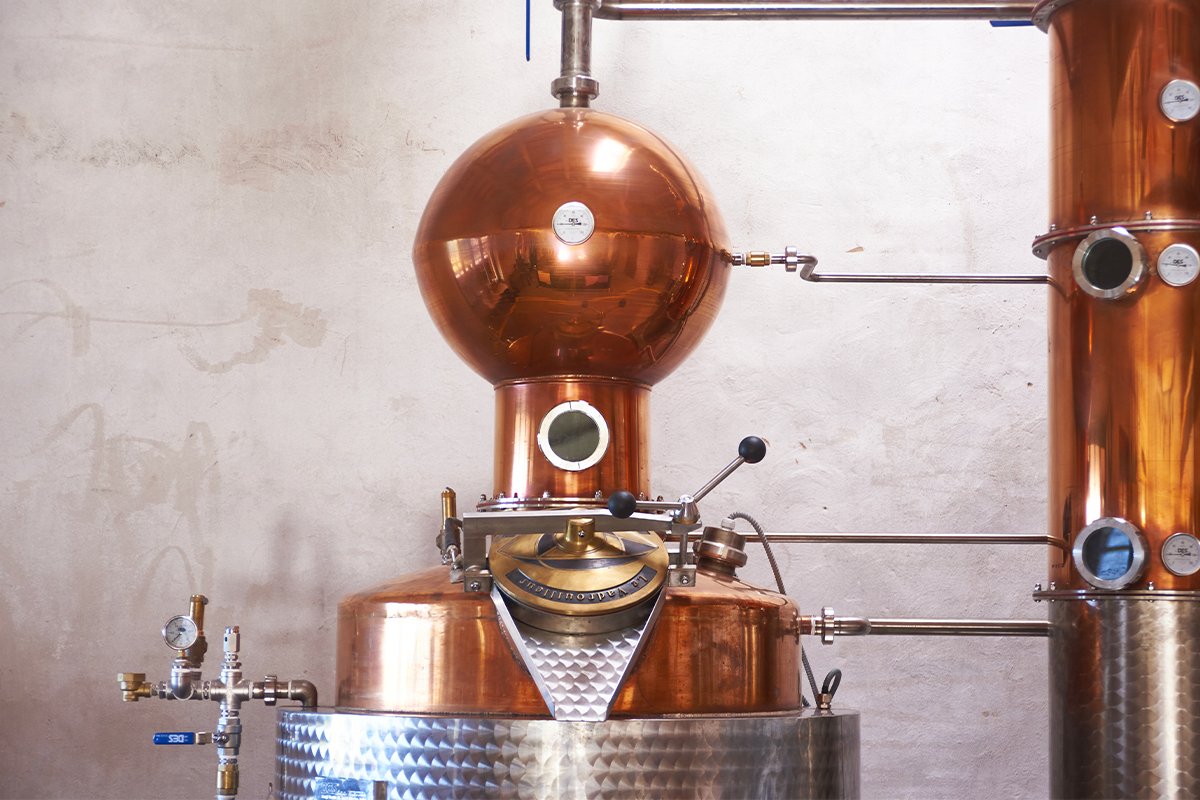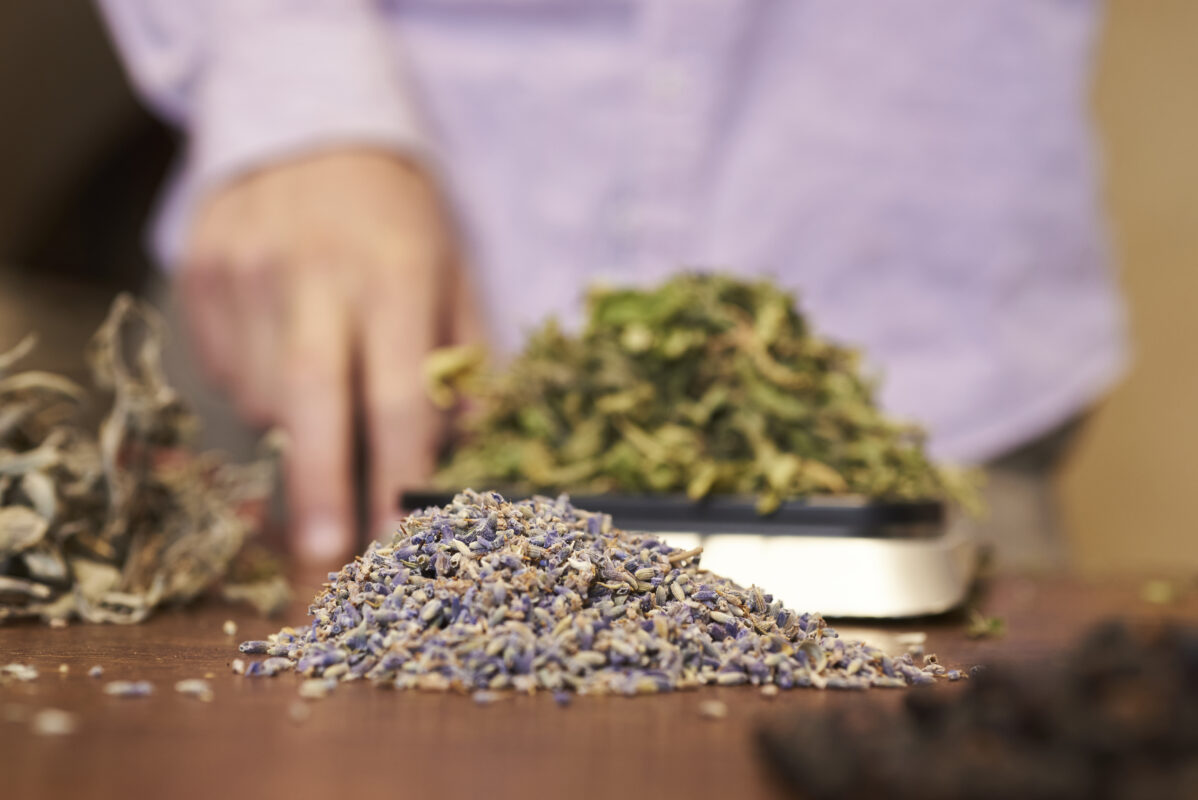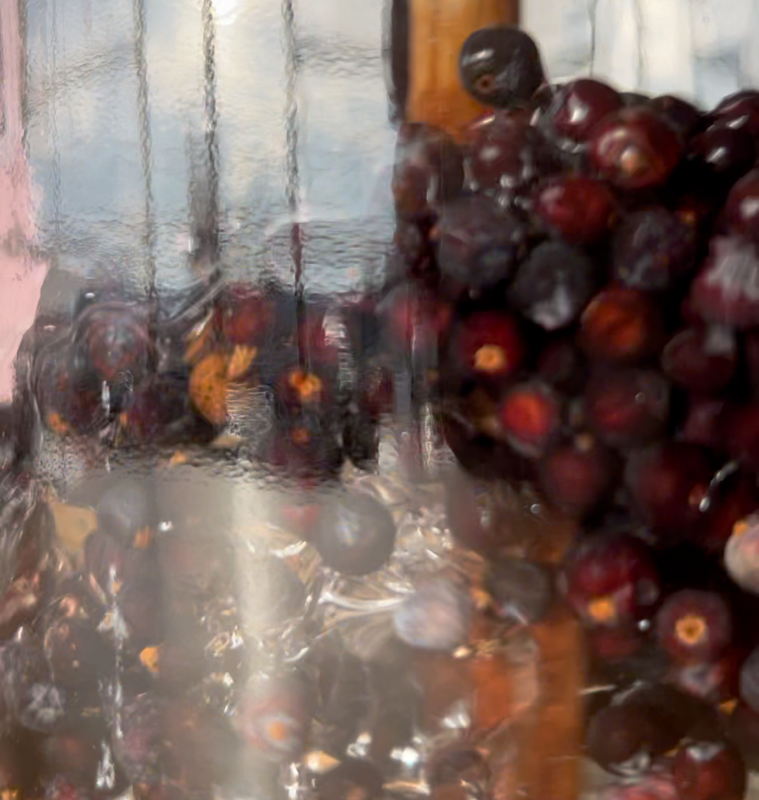Pomegranate Ratafia
We continue our adventure in the ratafias of the south of France. For the moment, we’re inspired by the fruits and plants of the Mediterranean, so after the quince, here’s the pomegranate.
The pomegranate comes from the pomegranate tree. It’s a fruit that’s been cultivated for thousands of years. It looks a bit like an apple, reddish-orange in colour, with small, triangular, garnet-coloured seeds inside. They are harvested in autumn. Pomegranates do not ripen once they have been harvested. The taste of pomegranate ranges from sour, sweet and sour to almost sweet.
The production of pomegranate ratafia is not new either. Its recipe can also be found in the Provençal cooking bible, Le Reboul, under the category of household liqueurs. The Provençal name is Ratafia de mióu-grano
According to the Manuel du distillateur liquoriste, the recipe for pomegranate ratafia is no different from any other ratafia.
It all starts with choosing ripe, juicy pomegranates. After opening and removing all the seeds, gently crush them to release all their juice, without crushing the seeds, which can add bitterness.
We’ll pour the pomegranate juice, along with the vodka and all the spices (cloves, vanilla, cinnamon) into a glass jar. The distiller-liquorist gives you a free choice of spices to add to the macerate. We chose to add cinnamon rather than mace.
To extract as much flavour as possible from the pomegranates, we’ve decided to add the seeds to the mixture and leave out the sugar at this stage
Leave to macerate for 10 days at room temperature. At the end of the maceration, filter the liquid through a chinois-type sieve. Add the sugar syrup and water and mix well before bottling.
The quantities of water and sugar are given as a guide only; you can modify them to suit your taste.
Ingredients
2 pomegranates to obtain 0.4l of juice
1l 37.5% vodka
66ml sugar syrup
34ml water
3 cloves
1 vanilla pod
1 pinch cinnamon To prepare a sugar syrup, you use as much water as sugar; dissolve the sugar in hot water and leave to cool; for example: 100ml of water for 100g of sugar.




